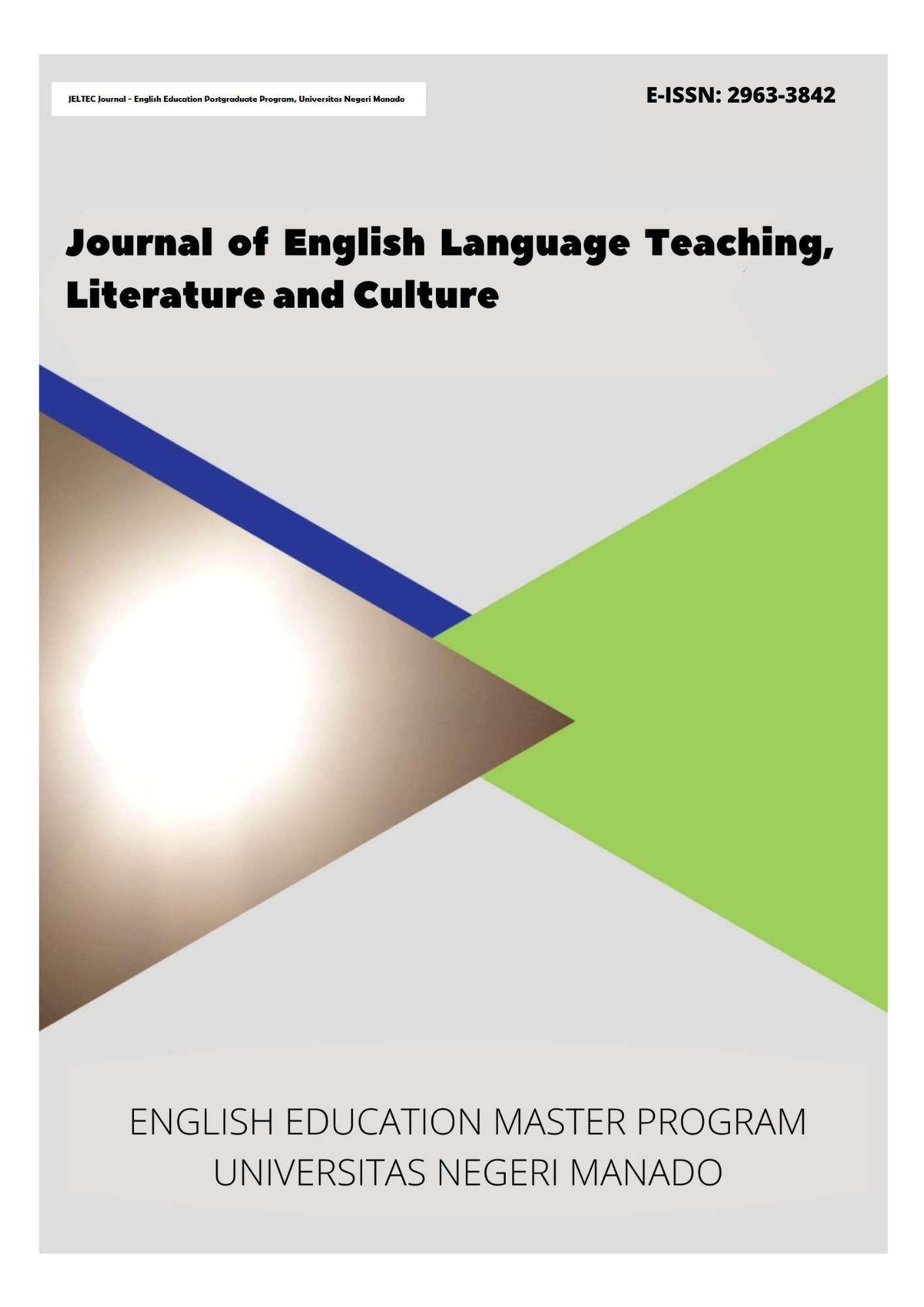Bridging the Gap: EFL Lecturers Familiarity and Knowledge of Technology in Language Teachings
DOI:
https://doi.org/10.53682/jeltec.v4i2.12768Keywords:
Technological Knowledge; TPACK; EFL Lecturers; Maritime Education; Technology Integration.Abstract
The rapid growth of digital technology has significantly influenced the landscape of higher education including English as a Foreign Language EFL instruction However many lecturers still struggle to integrate technology effectively into their pedagogy This study investigates EFL lecturers technological familiarity and knowledge in a maritime higher education context aiming to identify their level of technological competence and the underlying factors influencing technology use in teaching Employing a quantitative research design data were collected through a questionnaire administered to 15 lecturers from a maritime higher education institution in Indonesia The findings revealed that lecturers possess moderate familiarity with digital tools such as learning management systems and video conferencing platforms However their pedagogical integration of technology remains limited with most using it mainly for material delivery rather than interactive or student centered learning The analysis indicates that the lecturers technological knowledge TK has not yet been sufficiently linked with pedagogical PK and content knowledge CK as conceptualized in the Technological Pedagogical and Content Knowledge TPACK framework Barriers such as insufficient infrastructure lack of institutional support and limited digital pedagogical understanding were found to hinder optimal technology integration The study suggests that sustainable professional development programs focusing on digital pedagogy and contextualized training are essential to enhance lecturers competence in integrating technology for effective EFL instruction in maritime education < p>
References
Angeli C Valanides N 2009 Epistemological and methodological issues for the conceptualization development and assessment of ICT TPCK: Advances in technological pedagogical content knowledge TPACK Computers Education 52 1 154 168 https: doi org 10 1016 j compedu 2008 07 006
Basturkmen H 2010 Developing courses in English for specific purposes Palgrave Macmillan
Chai C S Koh J H L Tsai C C 2016 A review of the technological pedagogical content knowledge TPACK framework and its impact on teachers Educational Technology Society 19 1 74 89
Dewi R S Latief M A 2021 Indonesian EFL teachers readiness in integrating technology in teaching: A TPACK perspective Indonesian Journal of English Language Teaching 16 2 119 136
Ertmer P A 1999 Addressing first and second order barriers to change: Strategies for technology integration Educational Technology Research and Development 47 4 47 61 https: doi org 10 1007 BF02299597
Ertmer P A Ottenbreit Leftwich A T 2010 Teacher technology change: How knowledge confidence beliefs and culture intersect Journal of Research on Technology in Education 42 3 255 284 https: doi org 10 1080 15391523 2010 10782551
Harris J B Mishra P Koehler M J 2009 Teachers technological pedagogical content knowledge and learning activity types: Curriculum based technology integration reframed Journal of Research on Technology in Education 41 4 393 416 https: doi org 10 1080 15391523 2009 10782536
Hughes J 2005 The role of teacher knowledge and learning experiences in forming technology integrated pedagogy Journal of Technology and Teacher Education 13 2 277 302
Jang S J Tsai M F 2012 Exploring the TPACK of Taiwanese secondary school science teachers using a new contextualized TPACK model Australasian Journal of Educational Technology 28 4 656 671
Koehler M J Mishra P 2009 What is technological pedagogical content knowledge TPACK ? Contemporary Issues in Technology and Teacher Education 9 1 60 70
Koh J H L Chai C S Tsai C C 2014 Demystifying technological pedagogical content knowledge TPACK : The role of educational context and teacher beliefs Journal of Computers in Education 1 3 161 172 https: doi org 10 1007 s40692 014 0012 7
Laurillard D 2012 Teaching as a design science: Building pedagogical patterns for learning and technology Routledge
Mishra P Koehler M J 2006 Technological pedagogical content knowledge: A framework for teacher knowledge Teachers College Record 108 6 1017 1054 https: doi org 10 1111 j 1467 9620 2006 00684 x
Rahimi M Pourshahbaz S 2019 Teachers TPACK and teaching experience: Predictors of ICT integration in EFL instruction The Asia Pacific Education Researcher 28 3 193 202 https: doi org 10 1007 s40299 018 0419 3
Rahmat S 2024 The Impact of Local Dialect on Speaking Skill of Students in Technical Department at Politeknik Pelayaran Barombong Journal of English Language Teaching Literature and Culture 3 2 21 36
Rahmat S Putri S Mutmainnah N 2025 The Role of English in Merchant Marine: The Main Course or Supplemantary Course? Journal of English Language Teaching Literature and Culture 4 1 18 30
Rienties B Brouwer N Lygo Baker S 2013 The effects of online professional development on higher education teachers beliefs and intentions towards learning facilitation and technology Teaching and Teacher Education 29 122 131 https: doi org 10 1016 j tate 2012 09 002
Shulman L S 1986 Those who understand: Knowledge growth in teaching Educational Researcher 15 2 4 14 https: doi org 10 3102 0013189X015002004
Tondeur J Scherer R Siddiq F Baran E 2017 A comprehensive investigation of TPACK within pre service teachers ICT profiles: Mind the gap Australasian Journal of Educational Technology 33 3 46 60 https: doi org 10 14742 ajet 3504
Voogt J Fisser P Pareja Roblin N Tondeur J van Braak J 2013 Technological pedagogical content knowledge A review of the literature Journal of Computer Assisted Learning 29 2 109 121 https: doi org 10 1111 j 1365 2729 2012 00487 x
Wachira P Keengwe J 2011 Technology integration barriers: Urban school mathematics teachers perspectives Journal of Science Education and Technology 20 1 17 25 https: doi org 10 1007 s10956 010 9230 y
Yurdakul I K Odabasi H F Kilicer K Coklar A N Birinci G Kurt A A 2012 The development validity and reliability of TPACK deep: A technological pedagogical content knowledge scale Computers Education 58 3 964 977 https: doi org 10 1016 j compedu 2011 10 012






